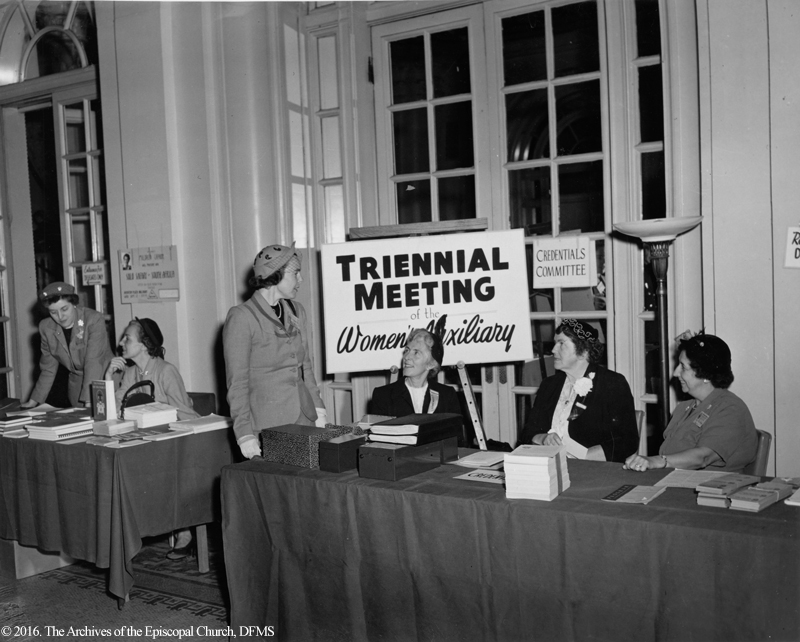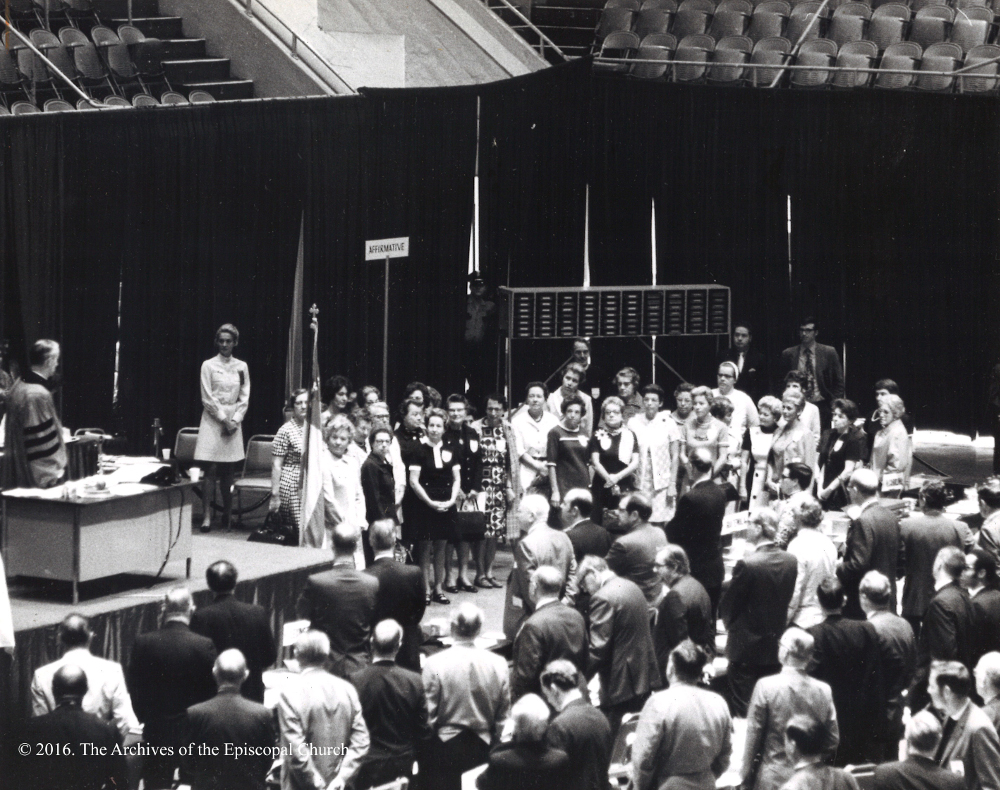Women and the House of Deputies
Women have always been essential to the institutional life and vitality of The Episcopal Church. Until relatively recently, however, they were barred from access to the formal structures of power within the Church and restricted to doing their work in an “auxiliary” capacity. In the nineteenth and early twentieth centuries, many women, including Women’s Auxiliary leaders Julia C. Emery and Grace Lindley, worked within the system to pursue the organization's interests in mission, but others were increasingly unhappy at what they felt was the condescending rejection of the unique gifts, talents, and insights that they could bring to leadership. Meeting together at General Convention, the Women's Auxiliary gathered as a separate "Third House", where they developed their own identity and resourcefulness.
The history of women in the House of Deputies mirrors the history of women in the larger society and Church. The House was not just reluctant but fully resistant to accepting the full inclusion of women. It is worth noting that as far back as 1946, a mere 7 votes kept women from taking their rightful position in the House, when male deputies closed a loophole that would have allowed a peaceable transition to women deputies. Given that women were the primary force behind much of the growth and mission work of The Episcopal Church, the rejection was humiliating.
The House’s refusal to admit women deputies as late as 1970 seems remarkably incongruous in light of the Church’s embrace at the time of a liberal public policy and social justice agenda. With notable exceptions, however, these changes were largely led by the clergy. Likewise, the full fruits of liturgical renewal and the theology of the shared baptismal ministry were, in the 1970s, still the guarded domains of the clerical order. Male clergy control of Church’s governance and polity was at its height and the lay male order took its cue from that privileged leadership. If change were to happen, women would have to force it by applying a relentless and insistent pressure. When they did so, they were resented for upending the clubbiness of the House and blamed for causing disunity in the Church.
In the end, having faced years of embarrassing setbacks just to find their proper place in the House, women and the progressive men who supported them would not settle for less than full equality in the Church’s ministry. The story of their piecemeal and gradual road to full inclusion in the life and governance of the Church is integral to the evolution of today’s more diverse House of Deputies.


